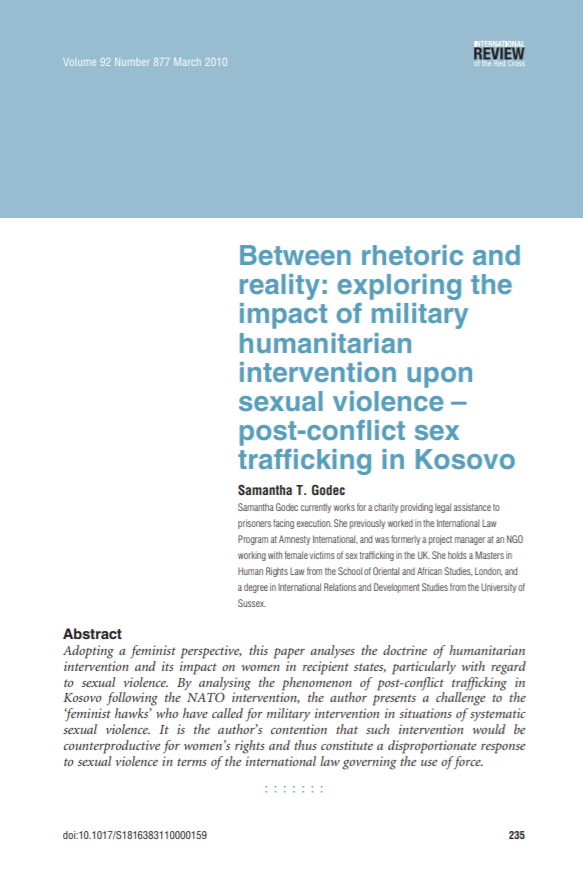A Toolkit for Reporting to CEDAW on Trafficking in Women and Exploitation of Migrant Women Workers

The Convention on the Elimination of All Forms of Discrimination against Women (CEDAW) is an international human rights
treaty which aims to eliminate all forms of discrimination against women and to promote equal rights between men and
women worldwide. CEDAW is of great significance to trafficking in women and the exploitation of migrant women workers
because it obliges states to uphold, promote, protect, respect and fulfil many rights which are critical in preventing and
eliminating trafficking in women and the exploitation of migrant women workers and ensuring that adequate and rightsenhancing protections and remedies are afforded to those affected.
The fulfillment of states’ obligations and duties under the Convention is monitored by the CEDAW Committee, a group of 23
independent human rights experts. One of the key ways in which state implementation is monitored is through the periodic
review process, in which state parties are obliged to report to the Committee on measures undertaken to implement the
Convention which subsequently assesses state progress and identifies areas for improvement. Non-governmental
organizations (NGOs) also have the opportunity to provide information to the Committee on the situation of women’s rights in
countries under review and to lobby them to address issues of particular importance with the state.
Over the years, throughout the review process, trafficking and the exploitation of migrant women workers have been addressed
with varying degrees of success. Limited understandings and experience of working on trafficking, as well as a strong
prostitution abolitionist presence within the Committee has meant that more often than not trafficking has been dealt with in
the context of sexual exploitation and in isolation from migration, labour and discrimination issues. Information provided to the
Committee by NGOs on the situation of trafficking has typically been similarly narrow in scope and depth, and disconnected
from the broader issues within which it exists. A more comprehensive and nuanced approach to trafficking and the exploitation
of migrant women workers must be adopted if the review process is to be effective in advancing women’s rights in these
particular areas of concern.
Accordingly, this toolkit provides guidance to NGOs engaging in the CEDAW review process. It hopes to enable NGO reporting
to provide more thorough information on the situation of trafficking in women and the exploitation of women migrant workers
7
and to link these areas of concern with migration, labour and discrimination issues. It also provides lobbying tools for NGOs
to facilitate effective advocacy to the Committee on these issues, in order that the Committee is better equipped to address
trafficking and the exploitation of migrant women workers with states under review.
Country
Worldwide
Region
Worldwide
Year
2011
Category








